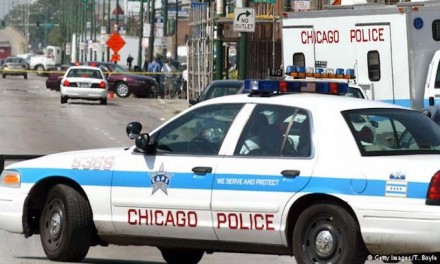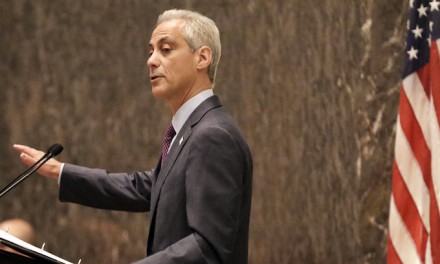Best Buy will no longer make political donations to 147 members of the U.S. Senate and House who voted against certifying the results of the 2020 presidential election.
The Fortune 500 company based in Richfield issued a brief statement Monday afternoon, six days after unsubstantiated charges of election fraud led supporters of defeated President Donald Trump to storm the U.S. Capitol.
Best Buy is among a number of companies across the U.S. — including Marriott, AT&T and American Express — that said in recent days they will suspend making contributions to that group of lawmakers in the wake of last week’s events.
Companies across Minnesota are examining political donations after the riot led to five deaths — including one police officer — and vandalism of property inside the country’s legislative headquarters.
Corporate political action committees — or PACs — collectively contribute tens of millions of dollars directly to candidates for Congress and the presidency in each election cycle.
Individuals denied that funding for trying to undermine the election could face additional political pushback. At a minimum, they are likely to see their votes not to certify the election as a major campaign issue if they seek re-election.
Corporations, meanwhile, may not want their brands associated with politicians who witnessed the violence and still chose to dispute the Electoral College votes that gave Democrat Joe Biden the presidency by a comfortable margin.
In Minnesota, Republican Reps. Jim Hagedorn and Michelle Fischbach voted against the certification of the votes from Arizona and Pennsylvania. Hagedorn received a $3,000 campaign contribution from Best Buy in the 2020 election cycle and $5,000 from Minneapolis-based U.S. Bancorp. Among large Minnesota public companies that provided information Monday, Fischbach received no donations.
Arizona and Pennsylvania were the only states whose vote counts were challenged after the rioters broke into the House and Senate chambers and shut down Congress for several hours.
Most companies that responded to a Star Tribune inquiry about donating to those who opposed certifying the presidential election results took a wait-and-see approach.
“The Medtronic PAC is currently reviewing its guidelines for political donations as it develops its contribution plan for the 2022 election cycle,” company spokesman Ben Petok said in a statement. “The PAC board will make a determination about future donations once that review is completed. While that review is underway and until the new PAC contribution plan is approved, the Medtronic PAC will not make any donations to elected representatives or their leadership PACs.”
Target has temporarily paused political giving. 3M has suspended political giving for the first quarter of 2021, as it studies its policies. A spokesperson for UnitedHealth Group said the company will review its policy, too, as will U.S. Bank.
“U.S. Bank has announced that as a result of the recent violence at the U.S. Capitol that it has immediately paused all giving from its political action committee,” spokesman Jeff Shelman said in a statement. “The bank will review its approach to future contributions and ensure that our involvement in the political and policy process helps advance, improve and do what is right for the country, our customers and our employees.”
Corporations judging whether candidates do “what is right for the country,” as well as what is in their customers’ and employees’ best interest is a tweak to political giving philosophy, said Bruce Freed, head of the Center for Political Accountability, which counsels corporations on responsible donations. But the impact depends on how companies define what is right, added Freed, whose group just produced a model code for companies to follow.
The business community “is clearly reacting to an attempted coup,” Freed said. “I recognize this as a defining moment.”
How long the changes will apply — or whether the PAC policy changes also apply to “dark” money contributions that do not require public disclosure — is yet to be seen, he said.
For the moment, though, attention remains focused on Republicans.
Stripe, a processor of small donations that had helped Trump raise tens of millions for his postelection bid to overturn the results, has stopped offering its service to the Trump campaign, according to the Wall Street Journal.
JPMorgan Chase and Citigroup also said they would temporarily stop all political contributions.
Kansas City-based Hallmark went one step further and said Monday that it is asking Sens. Josh Hawley, R-Mo., and Roger Marshall, R-Kansas, to return its donations of $7,000 and $5,000, respectively.
For now at least, last week’s actions seem to have given rise to a new campaign donation metric.
“We continually re-evaluate our political giving and are still considering the impact of the violence at the Capitol on our future donations,” Xcel Energy spokeswoman Julie Borgen said. “We will assess our future contributions to members and the impact of the events of last week on a case-by-case basis.”
___
(c)2021 the Star Tribune (Minneapolis)
Visit the Star Tribune (Minneapolis) at www.startribune.com
Distributed by Tribune Content Agency, LLC.
—-
This content is published through a licensing agreement with Acquire Media using its NewsEdge technology.



















i dont care i quit with that bunch years ago.
Hey Capricorn1, I quit too. But these knuckle head types that are their competitors are doing the same darn thing. For business unfortunately we need some of them. Kind of like what down with 2nd amendment suppression by companies. A lot of them out there. To bad they aren’t being DOX’ed so we all know who to do business with and those we are forced to do business with. Then we can plan days were we ruin the sales days or jam them up when they do physical audits with a lot of purchase and returns.
THEN best buy, has permanently LOST MINE!
Does this include those that objected to the Results in 2016 and the Bush/Gore election?
I was going to ask the same question, but you beat me to it. Crickets, do you hear crickets?
No, cause those were all LIBTARDS, so that was OK… ITS just republicans who are ‘wrong’ for contesting the dem STEALING of our election.
….and the Democrats challenge the electoral vote in 2000 (elaborating on the Bush/Gore part).
Well, I suspend making any contributions to Best Buy’s economic growth.
“unsubstantiated charges of election fraud led supporters of defeated President Donald Trump to storm the U.S. Capitol”. Nice try, the FBI acknowledged, that the so called storm the U.S. Capitol, was planned by militia groups, weeks before Trump’s speech on January 6th. Trump would call this “Fake News”.
So would most ANYONE with half a brain… BUT WE KNOW those in office, don’t HAVE half a brain.
Where do these idiotic companies get their nerve? I feel adulterous are a danger to America, but we just elected a President and vice-president who indulged. I feel being financially beholden to foreign enemies is a danger to America but both Biden and Harris have financial connections to China, I feel sleeping with a Chinese spy is a danger to America but Swalwell, a Democrat, has a position protecting our NationalSecurity, a job that forbids such sleazy behavior. I can almost hear Bill Clinton saying….gee, how times change. Best Buy, unless you were elected or appointed, and are smart enough to separate the wheat from the chaff of political
duplicity, you just lost a whole bunch of conservatives who actually buy items, not loot them.
I wonder, how many of their stores, GOT LOOTED during the ‘summer of love’???
That’s funny, I’ve suspended any purchases from Commie Buy.
Go Woke, go Broke.
Suggestion – why don’t they all try signing a pledge to NOT donate to any PAC and pass the savings on to the customers or stock holders? And keep the hell out of politics and virtue-signaling. Try donating to the local Little League, Scouts, etc. instead of useless politicians if there is a need to virtue-signal how wonderful a corporation you are.
How’s about we ELIMINATE all PAC’s period.. IMO THAT would do massive good.
I guess I will not be buying anything more at “best buy”. And that would include 6 of my friends also, after reading this.
I’ve contacted TWO of my local stores, to let them know they’ve permanently lost my business.. ALL I GOT In response was “Sorry to see you go. We’re sorry our stance on politics is offensive to you”.
If they have donated to the campaigns of Lee (CA), Jayapal (WA), McGovern (MA), Raskin (MD), Jackson-Lee (TX), Grijalva (AZ), and Waters (CA) between 2017 and now then they are a bunch of hypocrites. Every one of these Representatives challenged the electoral college vote in 2017 when Pres. Trump was elected. It is a fact, there is a record. Either it is OK to do so or it isn’t but it can’t be OK for one group and not the other.
AHH.. BUT AS we’ve seen, day in and day out for the past 10+ years.. WHEN DEMS DO IT, its all ok. IF we conservatives do, its wrong.
Right PL. I Don’t remember hearing these jerks make that kind of threat when those dems contested in 2017. For me but not for thee.
I agree IT. Eliminate all PACS. Stop out of state donations too.
That’s something i have LONG BEEN AGAINST..
Why the hell, should someone living in state A, even BE ABLE TO INFLUENCE in any way, manner, shape or form, the election in state Z.. Same goes, for those not even LIVING IN the states (GEORGE soros!)
Doggone it! I was on my way to Best Buy to make a large purchase. Now I will have to find them somewhere else.
Republicans have themselves to blame for this. They were weak for decades. Establishment failed the USA and now there is a activist clan running America.